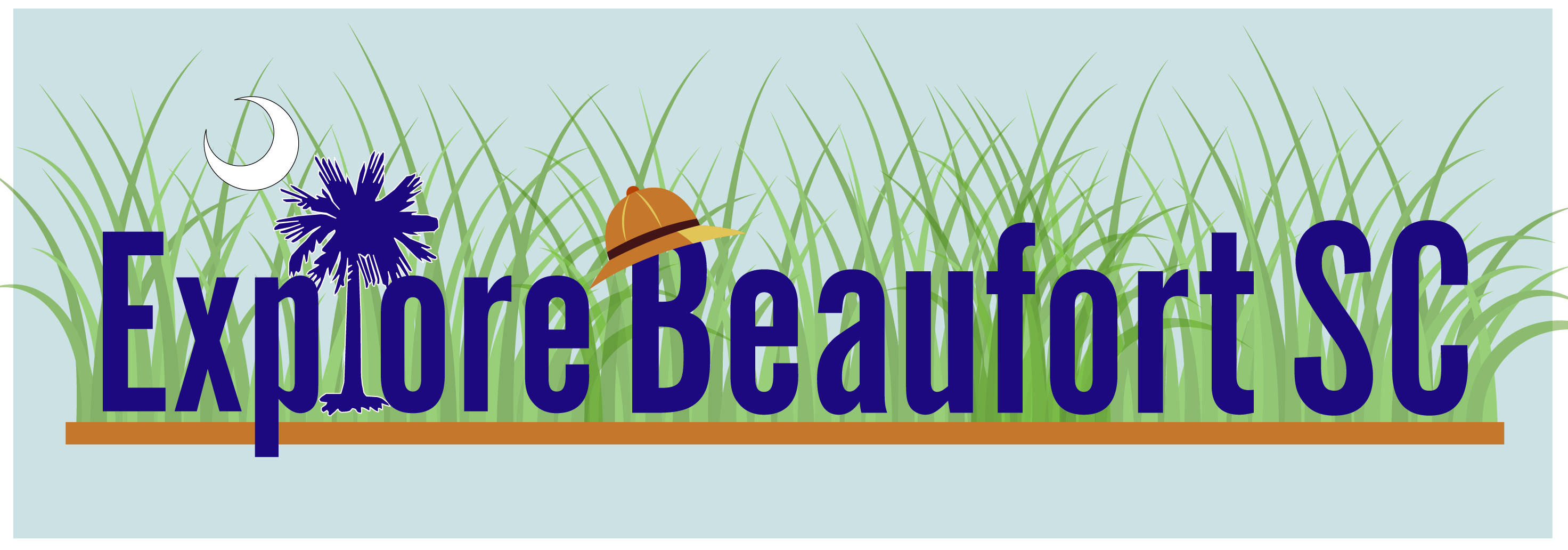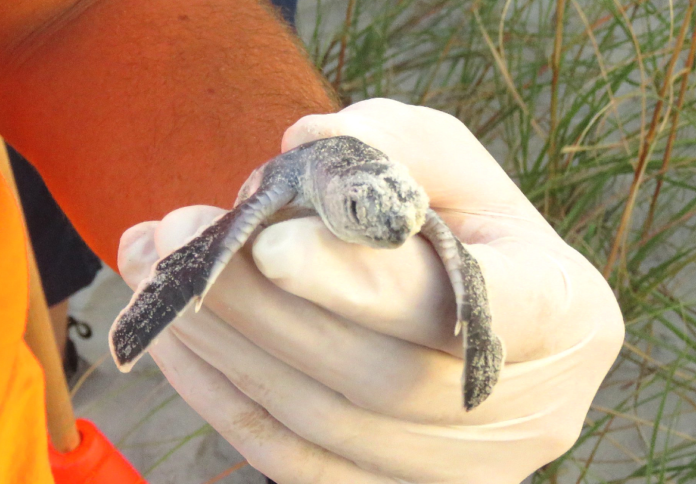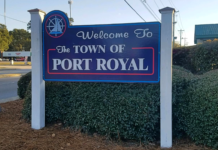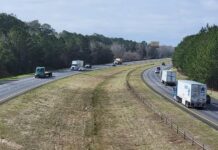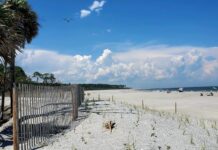In a case of mistaken identity, what was thought to be a Loggerhead sea turtle nest on the beach at Hunting Island State Park, actually turned out to be the first ever green sea turtle nest to hatch on Hunting Island’s beach, and nobody knew until its hatchlings emerged on Tuesday evening.
“[Tuesday’s] sea turtle nest inventory turned out to be a Green sea turtle nest rather than a Loggerhead nest,” Park Ranger Carl Berube said on Facebook Tuesday night.
Berube confirmed in his post that it was also the first known Green sea turtle nest on the island since records have been kept.
“There were 8 live hatchlings that were released to the ocean,” he said.
The Green turtle is the second-largest sea turtle species, behind the enormous Leatherbacks. Usually always nesting in Florida, Green turtles dig deeper than loggerhead sea turtles and their eggs are also larger than their more common cousins’. The turtle’s eggs will incubate for 60 days just like all other species.
Beaufort has been seeing some of these rare turtles this year. Also this turtle season, a Green sea turtle laid its nest on a Hilton Head Island beach for only the 4th time ever.
Sea Turtle Nesting Season Reminders
- Report all sick/injured/dead sea turtles and nest disturbances to the SCDNR at 1-800-922-5431 so that staff/volunteers can respond as soon as possible.
- Respect boating laws and boat cautiously, especially in small tidal creeks where sea turtles like to feed. Boat strikes have emerged as the leading cause of death for sea turtles in South Carolina.
- Keep artificial lights off the beach at night during nesting season – this includes beachfront property lights and flash photography, which can disorient nesting mothers and hatchlings.
- Always respect sea turtles by observing them from a distance on the beach. Individuals that violate federal law by harming or interfering with sea turtles or their nests can be subject to civil penalties of up to $25,000 and up to a year’s imprisonment.
- Keep our beaches and ocean clean by avoiding single-use plastics. Plastic bags and balloons are among the most common trash items found on South Carolina beaches and can cause injury or death when sea turtles mistake them for food.
- Promote and support the SCDNR program for continued conservation of sea turtles in South Carolina.


